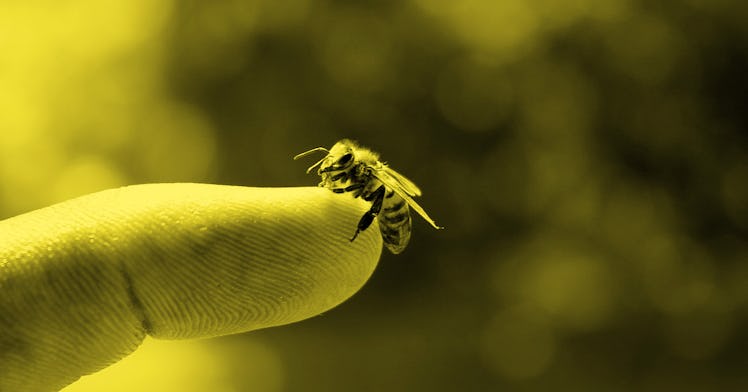How To Remove A Bee Stinger Like A Scientist
Put it on your card.

When bees aren’t pollinating (or appearing in Oprah gifs), they’re trying to sting you or your kid. Adding insult to injury, honeybees almost always leave their stingers behind, which raises a conflict often reserved for gray hairs—to pluck or not to pluck?
There’s a good amount of scientific evidence that plucking is a bad idea. The Mayo Clinic warns that using tweezers to remove a bee sting runs the risk of squeezing more venom into the wound, increasing pain, swelling, and the odds of your kid not wanting to go back to the park for a while. But simply scraping away the stinger with the end of a credit card, on the other hand, can remove it safely, the U.S. National Library of Medicine advises. The Centers for Disease Control and Prevention similarly endorses scraping or even wiping stingers away with gauze—anything but squeezing it with tweezers.
Noot every expert is convinced it matters, though. In fact, a 1996 study published in the Lancet suggests that the speed with which you remove the stinger is far more important than the method. ”I knew from my experience as a beekeeper that if you get the sting out quicker, you’re better off,” coauthor P. Kirk Visscher, an entomologist at the University of California at Riverside told the New York Times. ”This matters because when people get stung, they will spend time thinking what was I supposed to do, and looking for the proper tool.” Better off just grabbing a credit card—or whatever straight edge is nearby.
Plus, who’s going to pass on the opportunity to be a playground hero, whipping out your Visa and save the day. Your kids already treat you like a human credit card—perhaps it’s time you start treating them like credit card machines. Swipe.
This article was originally published on